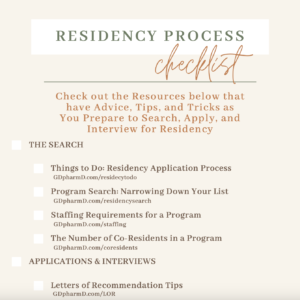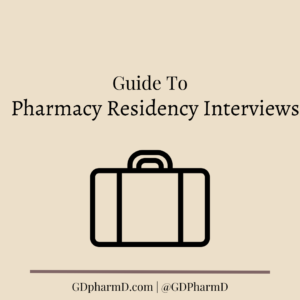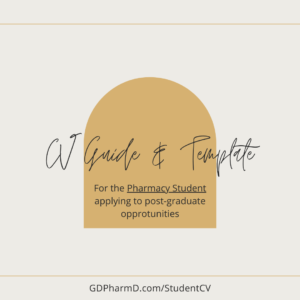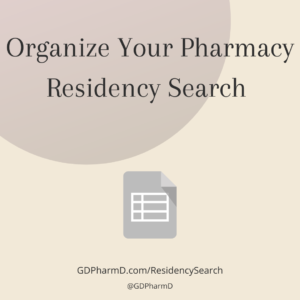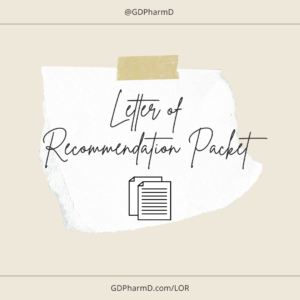You Matched, NOW WHAT??
Hey there! It’s been some time since I wrote a blog as there’s been tons of transition over the past several months but I’m back! I really enjoy writing on here and connecting with you so I’m happy to get writing again.
On my Instagram stories, I asked about some topics you all wanted more on and one of them was getting ready for residency (after matching) and what to do within the first few months to set yourself up well, so I took that into account and here we are 🙂 I will say (although not all residency programs are the same) that residency is straight-up chaos. While there are many things you can do to prepare, stay afloat, and organize, there will be (many many) times when it will feel overwhelming regardless.
As I was writing this blog, it was getting way too long so I have broken it up into a 3 part series.
WHAT TO DO IN THE MONTHS LEADING UP TO STARTING RESIDENCY
1. Rest up
Above everything else, residency is a busy year and you may not get as much physical and mental rest as you would like. So, in-between match day and starting residency, definitely take some time to rejuvenate and do fun things that you enjoy regularly. You just finished a four-year doctorate program – that’s intense! Trust me, I get it, after matching, it seems like between getting ready to move, graduation festivities, licensing exams, and everything else going on it’s hard to find time but it’s really important to rest not just your body but also your mind! You accomplish two huge things – locking in post-grad plans and graduating! Enjoy it and recognize it before moving onto to the next thing.
2. Spend time with your friends and family
You may be moving away for residency and may not be able to see everyone you normally see at regular time periods just because of the sheer demands that are placed on you. Spend time with your loved ones and cherish every second!
3. Check your email often and fill out the necessary paperwork and complete the pre-onsite tasks that the program will be sending you
A little after you match, leadership at your program and/or HR will reach out to you for various things. For example: doing your drug test, filling out employee paperwork…etc. You want to get as much out of the way as possible and fill those documents out at your earliest convenience so the program can move forward and do what they need to do in the background to prepare for the new class of residents coming.
4. Study for the NAPLEX and MPJE
I have an entire blog post dedicated to How to Study for and Pass the MPJE. Try your best to take both your NAPLEX and MPJE before you start or the latest before orientation is over. If you are aiming to become licensed in multiple states, prioritize the state where your residency/job is located. In addition to that – stay on top of all the things you need to submit for licensing to your respective board of pharmacy.
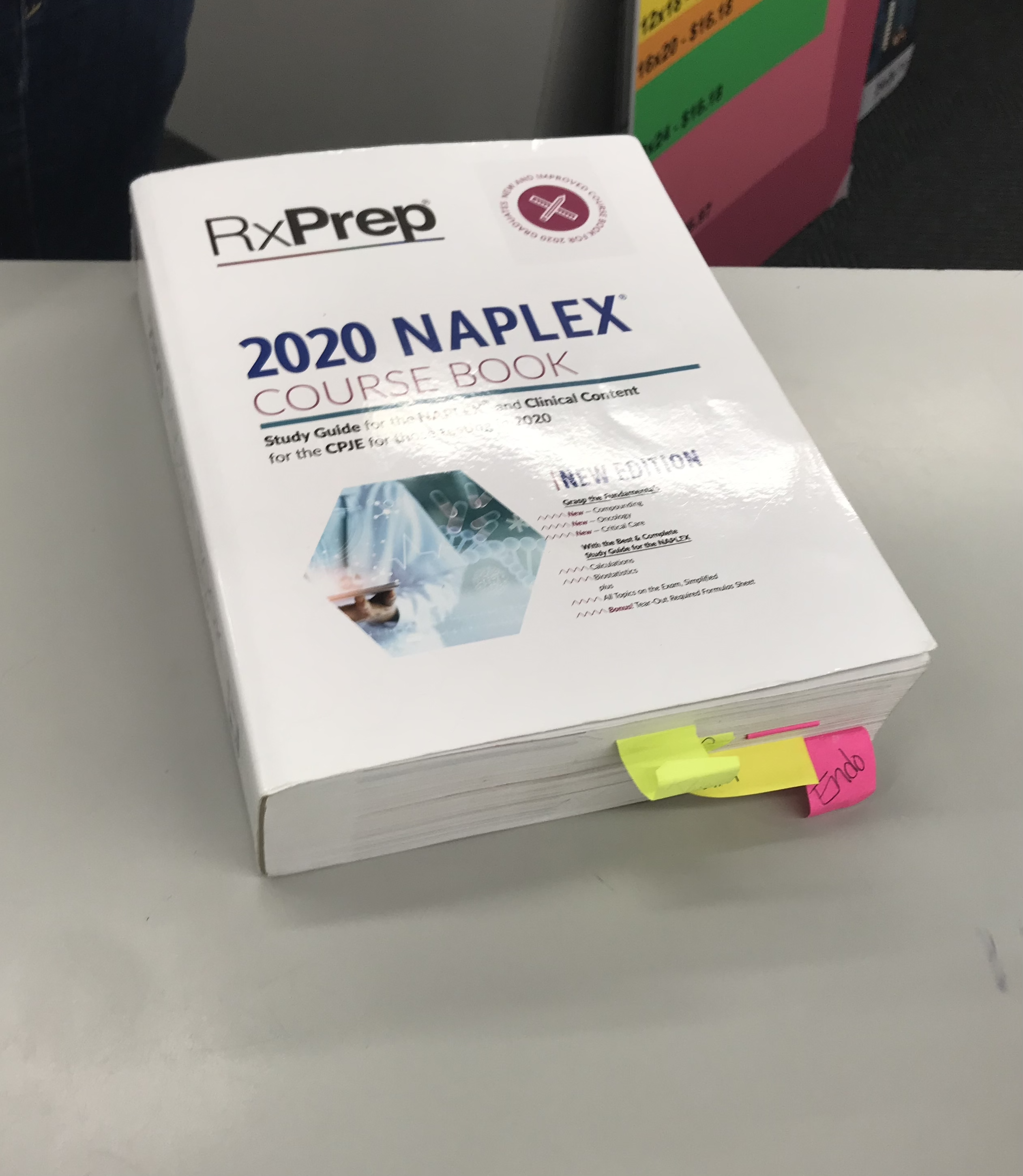
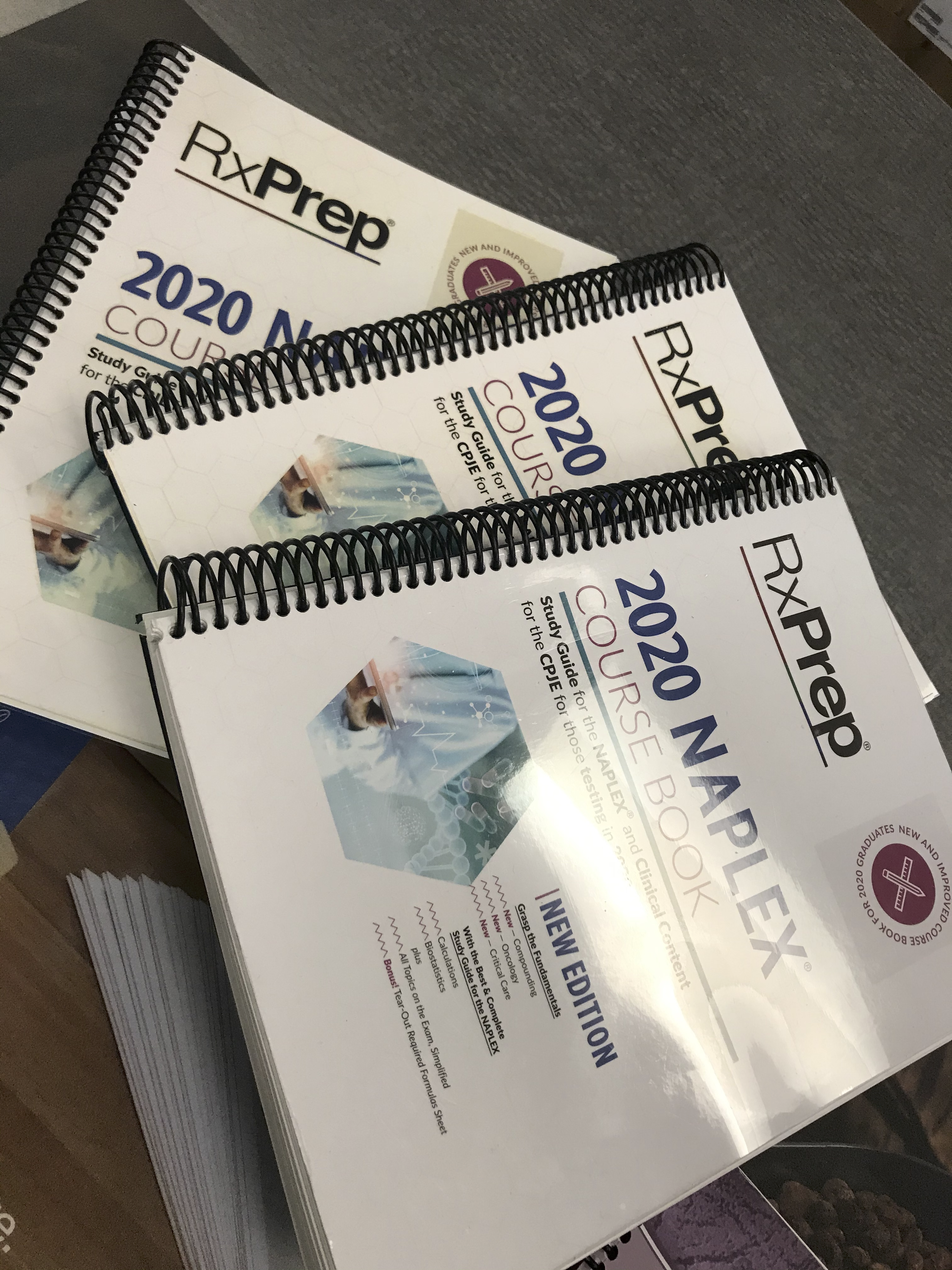
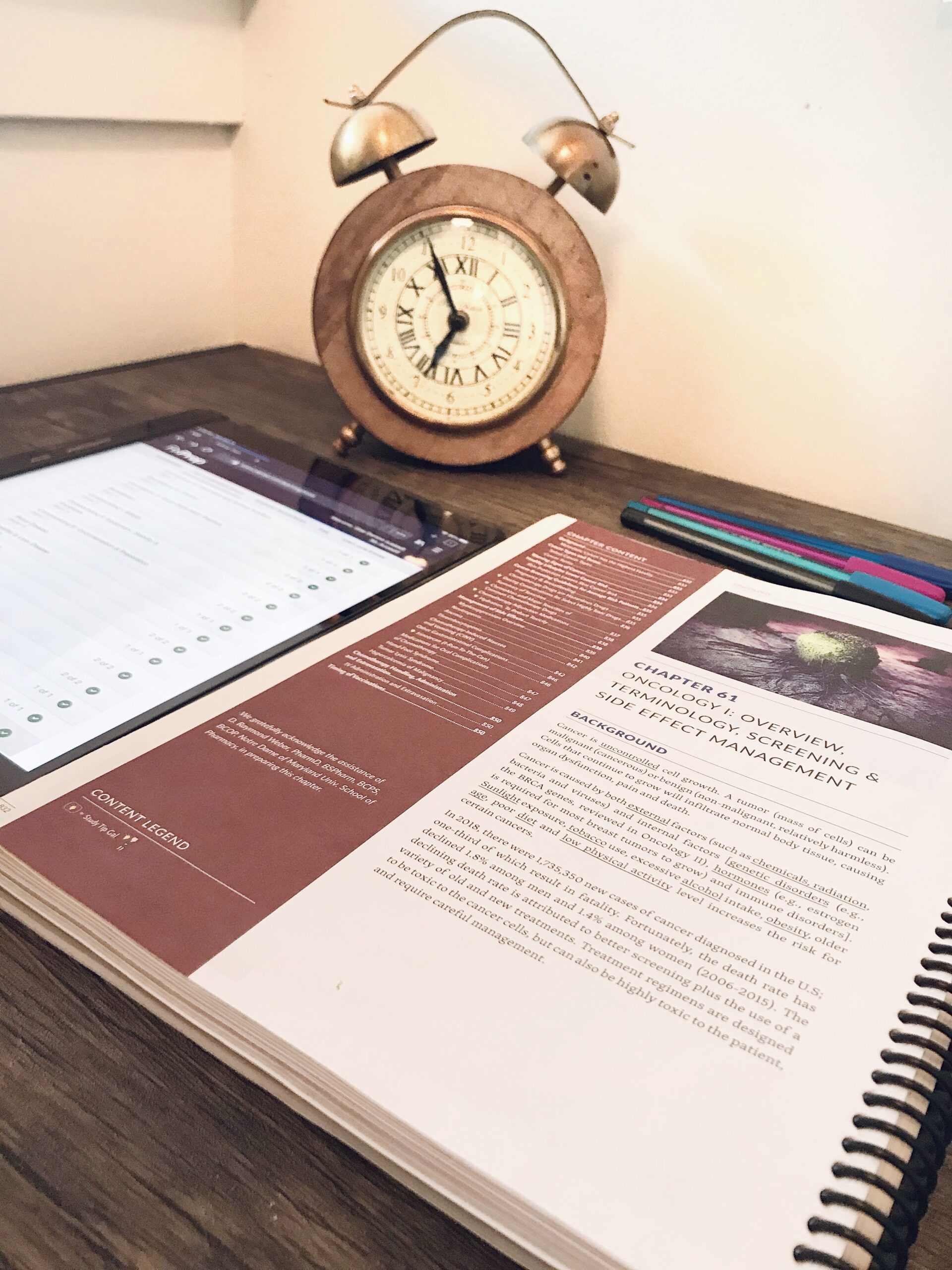
I don’t have a full blog post dedicated to the NAPLEX, but I will link some blog posts from others in this pharmacy community below. For the NAPLEX, I only used the physical RxPrep book and the RxPrep test bank (and notes from pharmacy school if I wasn’t understanding something). I’ve never been great at standardized testing, so I gave myself ample time to study considering I would be moving, graduating…etc – I started studying around mid-late March and took the exam in late June. Here are some quick thoughts
- I would say don’t spend a lot of time making fancy study guides or summary sheets (if making fancy guides helps you, that’s fine but if you find that you’re spending more time making them than actually studying, reconsider especially if you’re short on time).
- Calculations are important! I started with that section and did practice nearly every day. This helped A LOT and made it so that I was able to memorize the formula sheet and conversions easier.
- Understand the biostatistics/statistics chapter well. Both calculations and stats are ‘freebies’
- I did go through the book 2-3 times (I definitely did not memorize and study in depth every section because the sheer volume was just a lot). I focused on bold and underlined sections. It’s important not to get caught up too much in the details [caveat, I took these licensing exams in 2020, so follow the most recent advice from recent grads].


Other Blogs (not in any particular order)
- ShelbyPharmD: How I Studied For The NAPLEX
- MsRxGeek: I passed! How to pass Naplex and more and How to Finish the Rxprep Book in just 30 days
- Uniquely Mickie: 11 Study Tips to Help You Pass the NAPLEX Exam
- The Luxe Pharmacist: Studying for the NAPLEX 101
Youtube Videos (not in any particular order)
- MehrV: NAPLEX and CPJE
- The Pharmacist Academy: How to PASS NAPLEX the first time
- Happy Pharm Life: Her Youtube channel has a lot of NAPLEX and MPJE tips, so check it out!
5. Start to reflect on your residency strategy (which may very well change)
For example:
- How you’ll organize things like your schedule and daily to-do’s both in residency and in your personal life
- What your outlet(s) will be outside of residency such as exercising or other hobbies
- Goals for the year (personal, professional)
- Take a look at your programs’ list of rotation offerings again to re-familiarize yourself with it and take note of which rotations you may want to do and in what order (be flexible, this will likely be adjusted for factors outside of your control)
- Prepare your mind for constant feedback, not knowing everything, and being a humble learner
- There’s a lot of admin work, projects, and planning that goes into residency. If you are not the best at time management and/or project management, it may be good to watch some youtube videos/podcasts on best practices (parts II and III of this series will go into this topic as well).
- Help manage expectations of your free time (or lack thereof) with loved ones, roommates, etc. and talk about it openly
- Think and learn about finances, such as money management, budgeting, student loans, retirement…etc.
6. Make a list of realistic things you need to purchase for the year
I moved for residency, but whether you’re moving or not, there are probably some things you’ll want/need to buy. I would say there is nothing that is essential to residency or that you ‘have to’ buy besides maybe scrubs and a white coat lol but you know what I mean – don’t feel pressured to get a fancy work bag or a whole new wardrobe. Work with what you have and if purchasing additional wants (not needs) is something you can do, then by all means go ahead.
Realities to consider when finding a place to live: The salary as a pharmacy resident is not as much as you’ll be making as a pharmacist, so keep that in mind. On average from what I’ve experienced and talked to friends about, the average pharmacy residency salary is $35,000-$60,000 (pre-tax) with the majority falling somewhere in the middle and the upper end being at hospitals with unions. It’s important to use an online calculator to determine how much your salary will be after taxes and budget accordingly to figure out what you’re able to afford for rent & utilities while having some left over for food, gas, and basic necessities especially if you’re supporting yourself through the year. I know it’s tough because some of these residencies can be in expensive cities where rent can take more than half your income so please be mindful of that when you’re looking for a place to live if you’re moving for residency.
I wrote a post about practical things to buy for residency with everything listed out and you can find that blog post Here, so check it out. If you’re looking for the original IG post, it’s here.
There are some things that I didn’t include in that list, like basic furniture (desk, bed frame) so I’ll include similar things below since the ones I purchased are no longer available on Amazon. I would recommend keeping a note in your phone with your list of things to buy from toothpaste to furniture, to clothes to seasonings lol to keep track. Consider dividing that note into two sections – needs vs. wants (it’ll help a lot!). Also, consider waiting for sales to see when some of your items may be discounted (Memorial Day sales and July 4th weekend sales, for example).
BED FRAME: the exact one I purchase here
LUNCH BOXES: somewhere to put that meal prep! HERE
OTHER random things
- Office supplies (which your residency program may already have) such as to-do lists, planners, and notebooks
- If you’re wanting to keep up an exercise routine, check this post out
- Scrubs (wait to find out your program’s dress code, what colors you’re allowed to wear, and if you have to get them from a certain vendor). These are the scrub tops and scrub bottoms that I bought when I was a clinical pharmacist.
- If you have access to a bulk store (Sam’s Club, Costco, BJs) buy things you use often in bulk such as cleaning supplies, toilet paper, toothpaste, feminine products, soap and shampoo/conditioner…etc. It’ll save time and money!
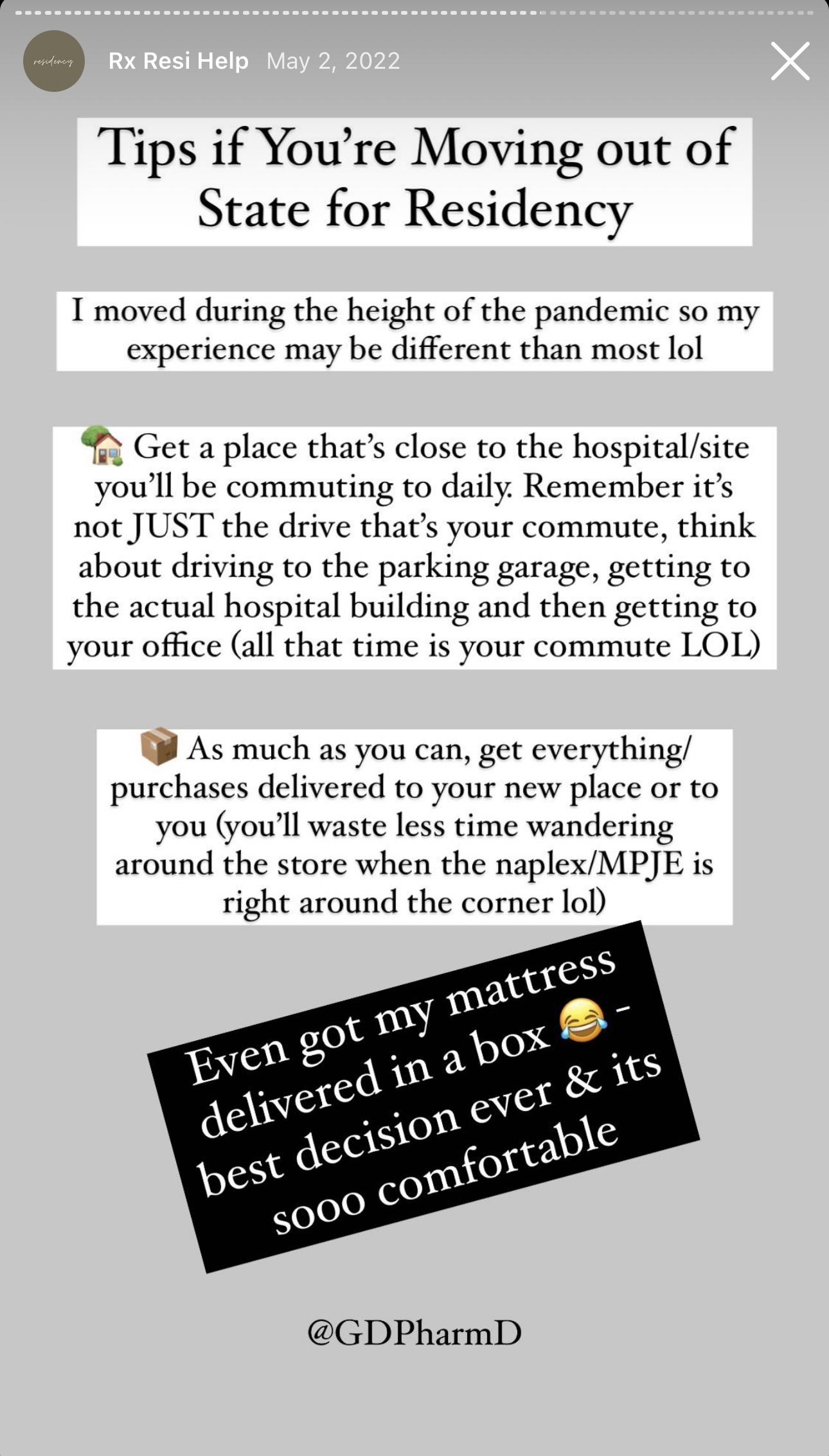

This was the mattress I got (I did get a DM on which mattress I purchased which is why I’m sharing lol). I purchased it from Sam’s Club but they are out of stock/no longer sell it, but it is on Amazon.
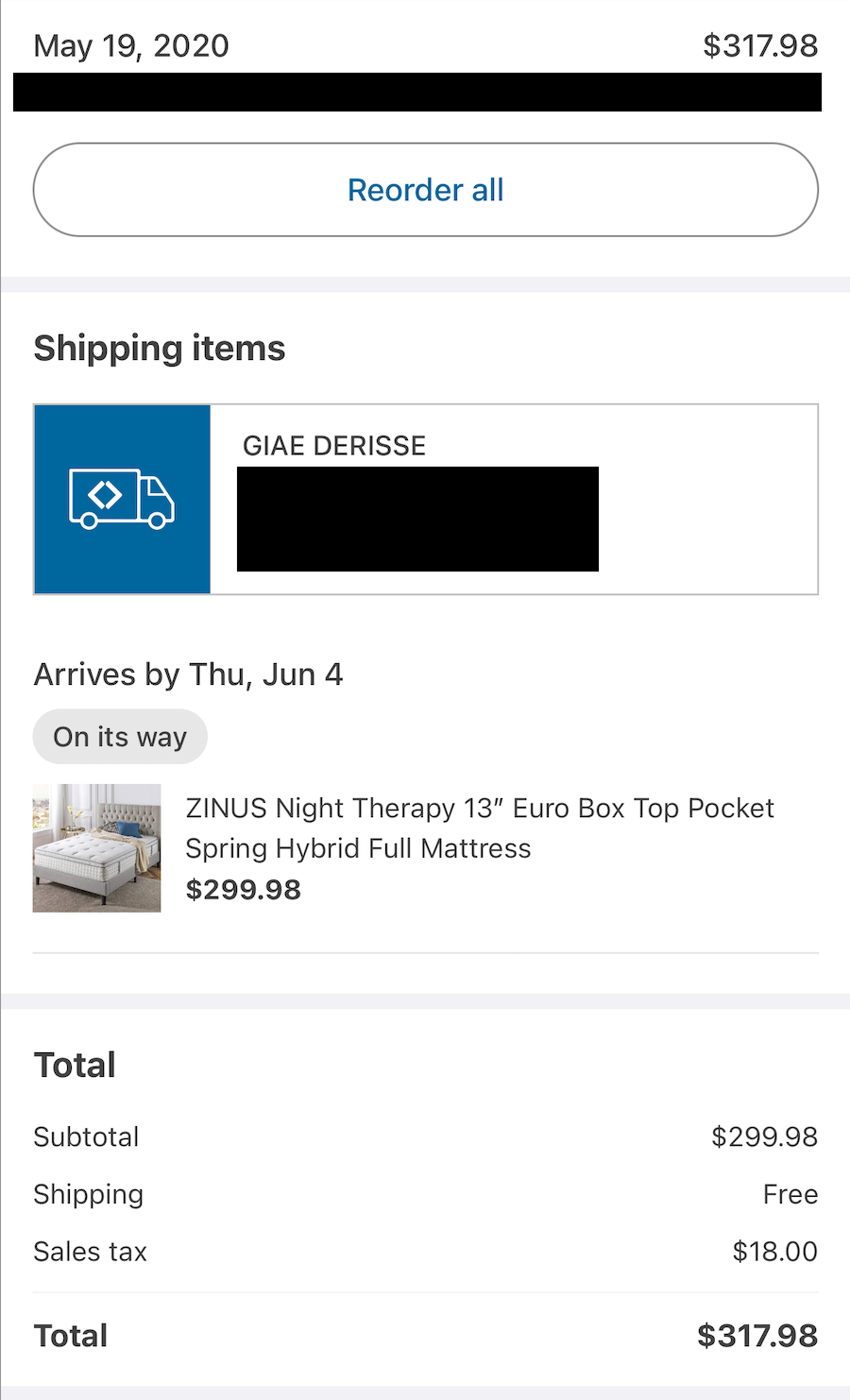
7. Moving Logistics
There is a lot that comes with moving, here are some things to add to the list if you haven’t already
- Change your address with USPS
- Update your various accounts with your new address: banks, car insurance, etc
Although moving is stressful, remember what’s most important is having a place to stay – everything else can be ordered online and will come together eventually. Focus on your priorities.
8. Consider Professional Liability insurance
Not everyone gets this, but I did – I used Proliability by Mercer. ASHP is affiliated with them and it was only $91 per year. It’s a personal choice and 100% an individual decision.
That wraps up Part I! If there’s anything about this part that you want more details on or have a question about, feel free to reach out! Instagram and email are the best ways to reach me.
Come back next week Friday (June 16th) for Part II which will be about Starting off on the right foot for Orientation and Training.
*UPDATE* Part II is published here.
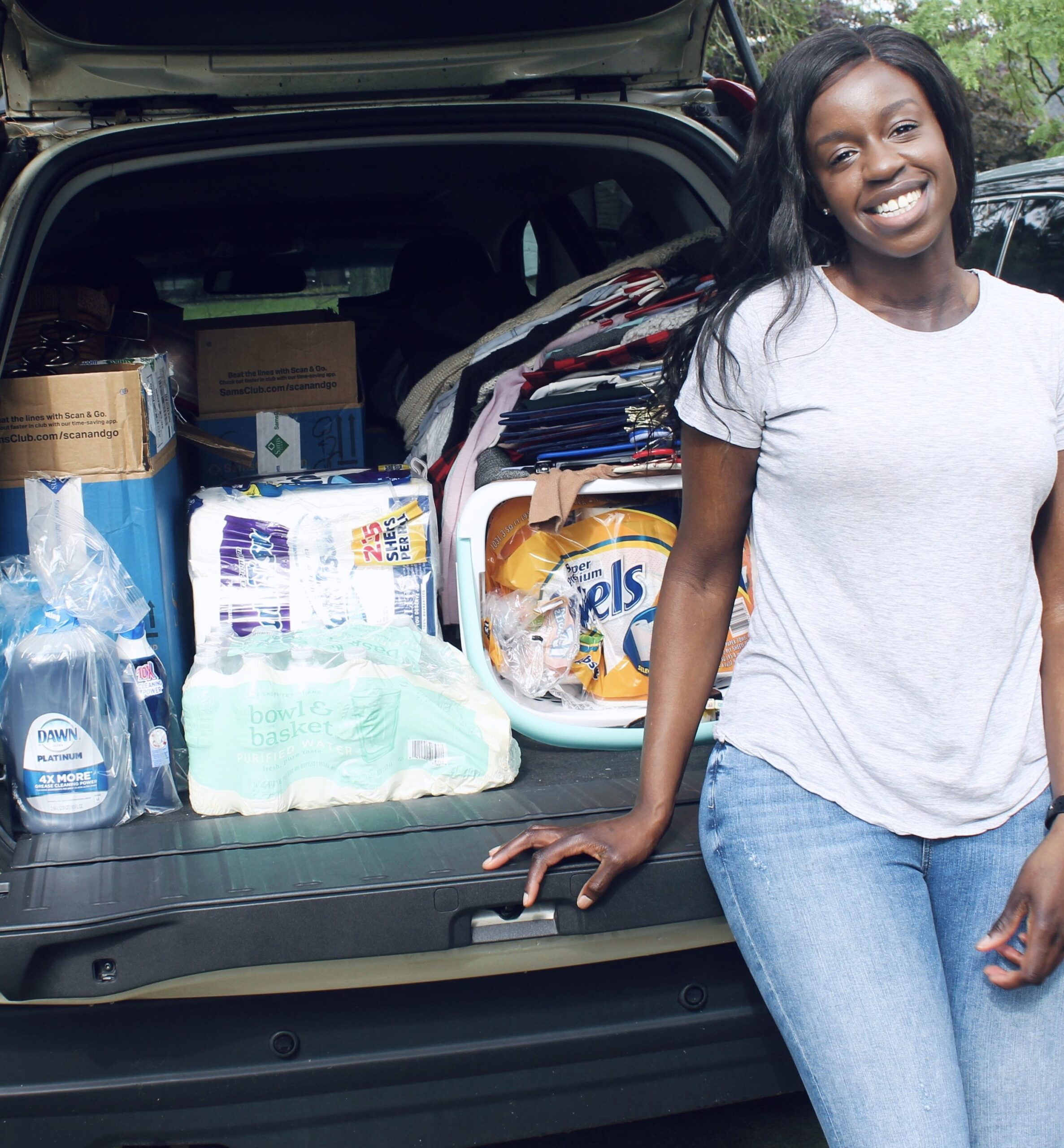
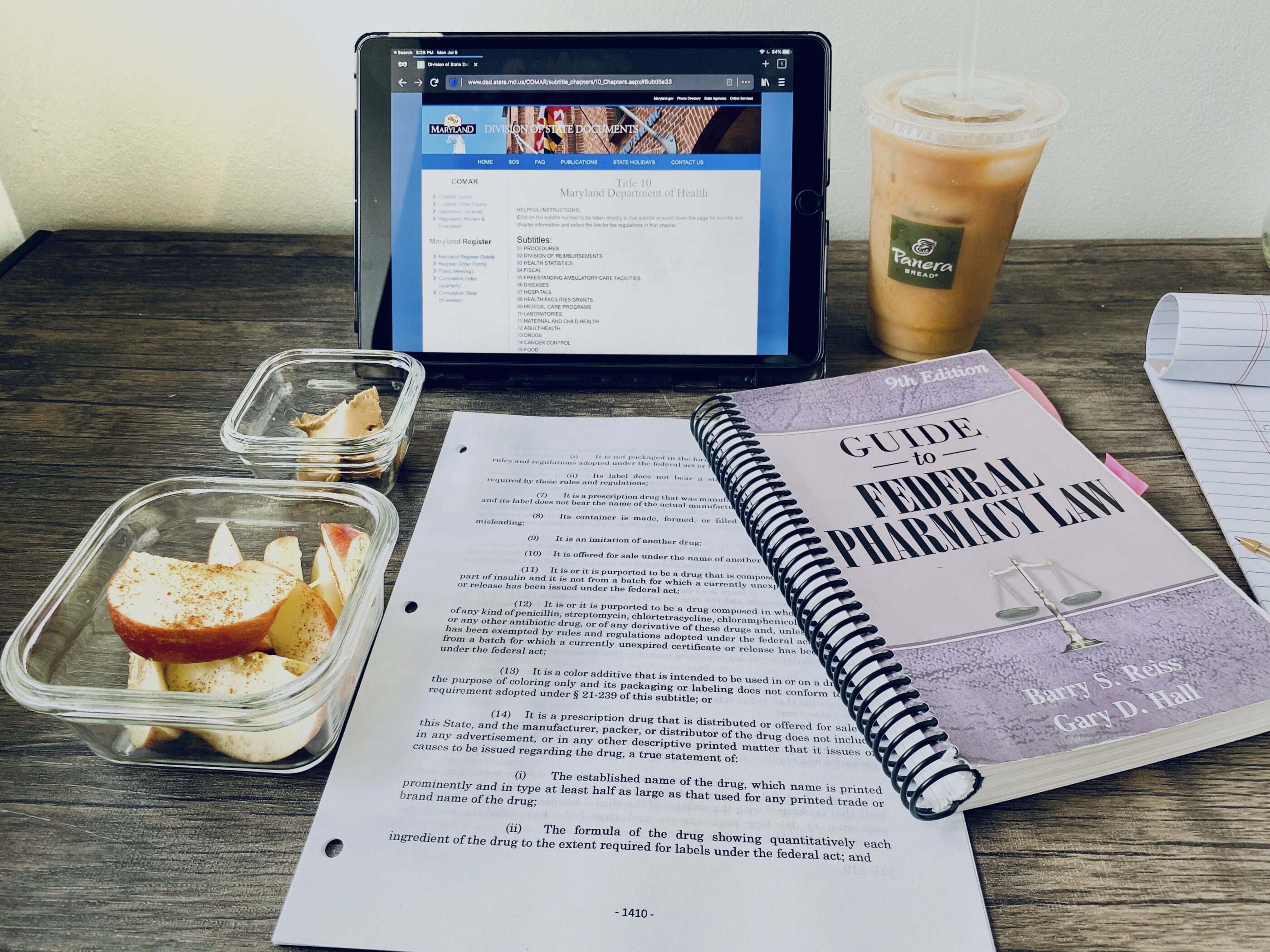

Proverbs 16:3 – Commit your actions to the Lord, and your plans will succeed
Proverbs 21:5 Good planning and hard work lead to prosperity, but hasty shortcuts lead to poverty.
When I link to products, some of those links may be affiliate links. If you click on any of those links and make a purchase within a certain amount of time, I’ll earn a small commission – this commission is paid by the retailer to me at no cost to you. As an Amazon Associate, I earn from qualifying purchases.

Practical Things I Used During Residency!
Top Pharmacy Apps You Should Try
Pass your Pharmacy Exams: BCPS and the MPJE
Getting Ready for Residency Part II: Orientation Month
Getting Ready for Residency Part III: How to do Amazing as a Resident and on Rotations as a Resident
